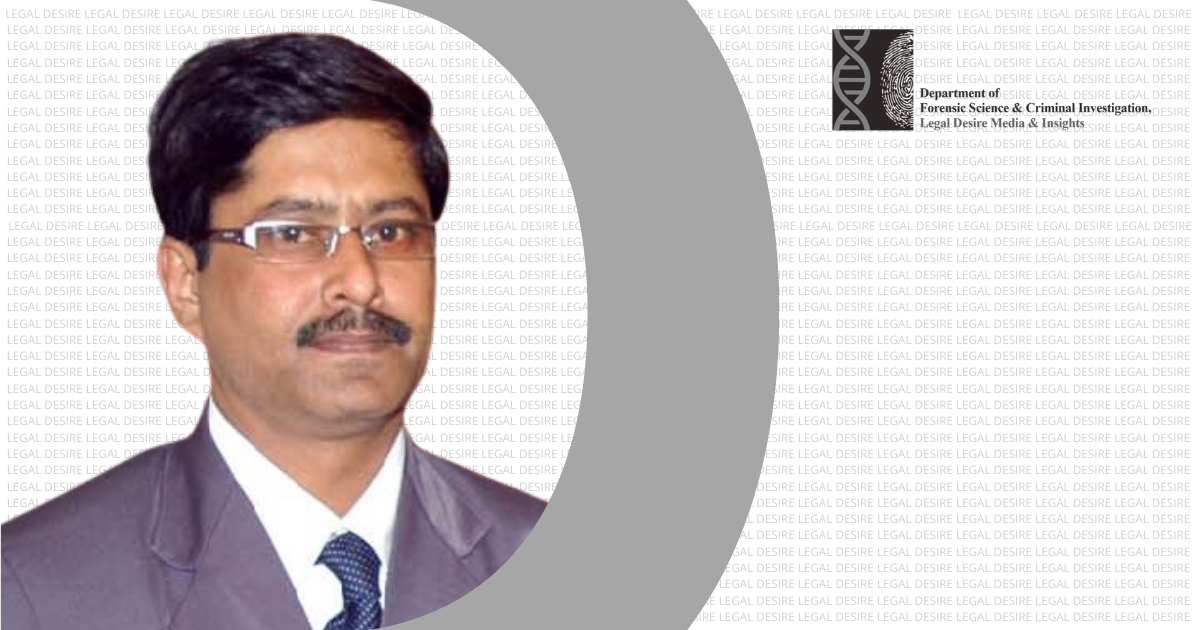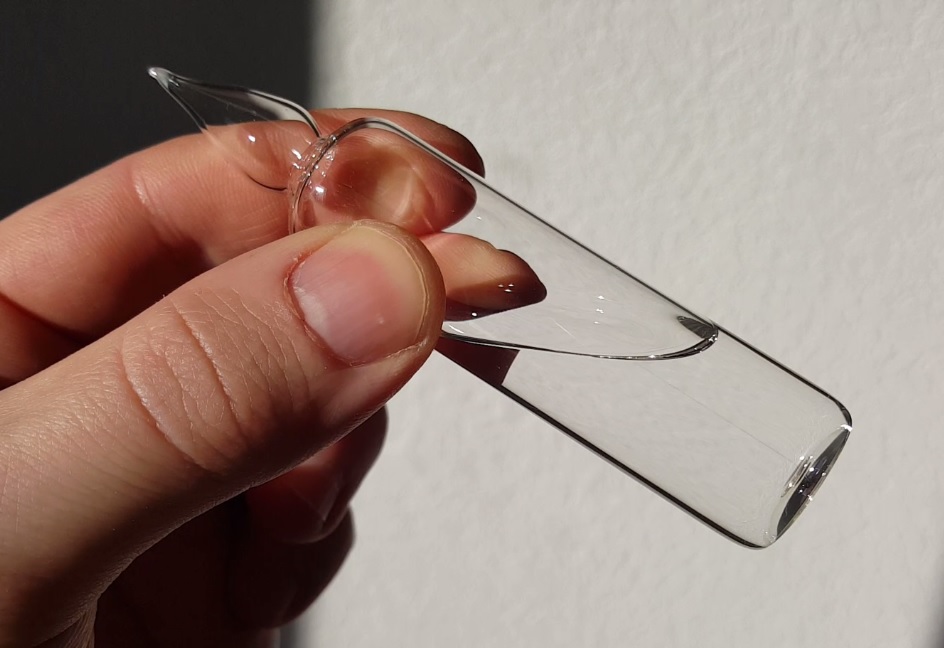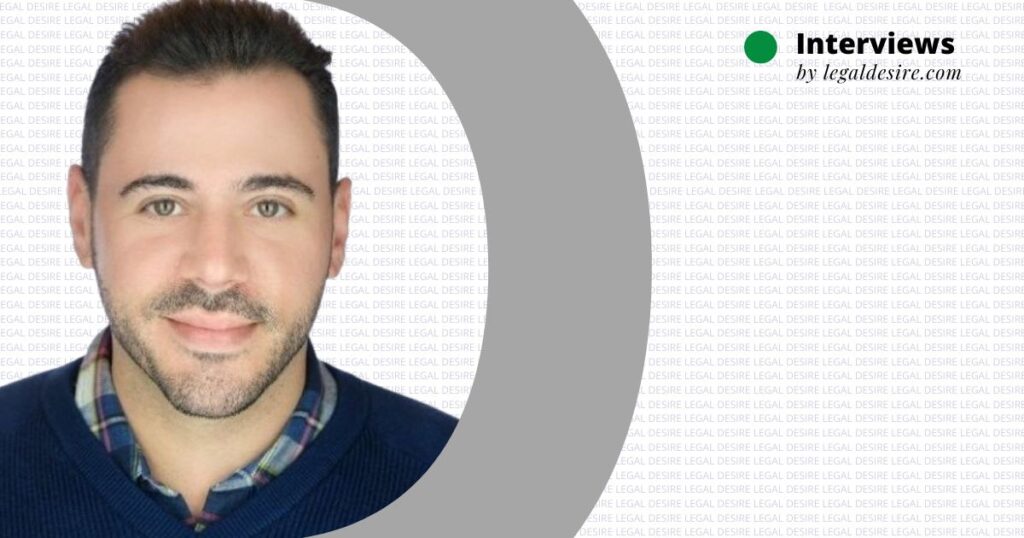Now Reading: In Conversation with Dr. Vinod Dhingra, Senior Scientific Officer, Police Training School, Tighra, Gwalior, Madhya Pradesh
-
01
In Conversation with Dr. Vinod Dhingra, Senior Scientific Officer, Police Training School, Tighra, Gwalior, Madhya Pradesh

In Conversation with Dr. Vinod Dhingra, Senior Scientific Officer, Police Training School, Tighra, Gwalior, Madhya Pradesh
An erudite scholar in Forensic Science, of immense caliber, Dr. Vinod Dhingra, Senior Scientific Officer at Police training college Tighra, Gwalior did his P.G. in Organic Chemistry from the distinguished Jiwaji University of Gwalior in 1989 with the first position in merit list he was awarded Doctorate in Philosophy by Jiwaji University, Gwalior in 1993 and synthesized various heterocyclic compounds which were tested as anti-cancer and Anti-HIV compounds in N.C.I. Maryland U.S.A. In 1998 selected by the Government of Madhya Pradesh as a scientific officer in the Forensic Science Laboratory. He has done a Certificate Course in Crime Scene in Investigation at the National Institute of Criminology and Forensic Science, Ministry of Home Affairs, Government of India, New Delhi in 1999. During his charismatic career as a Forensic Scientist, he underwent several trainings from various Indian premier institutes like ITRC Lucknow, CFTRI, Mysore, etc.
The deep insight and depth of knowledge in Forensic Science and Crime Investigation with creativity and innovation nourished his research capabilities in him. Consequently, he left no stone unturned and presented and published numerous research papers of national and international repute. Forensic research 2015 Atlanta U.S.A invited as speaker to deliver a lecture on pitfalls of quantitation of drugs in drug-related deaths.
Having a vast experience of about 24 years as an Officer in the field of Forensic Science and Crime Investigation and having inspected 300 various types of scenes of crime – homicide, suicide, accident, rape, gang rape, arson – the experience of this genuine forensic scientist helped him in analyzing and reconstructing the scenes of crime in many doubting and sensational cases and analyzed about 8000 cases and more than 15000 exhibits of criminal cases of chemistry and toxicology, published several papers in national as well as international repute. The prosecution witness of Dr. Vinod Dhingra before the court of law has been very crucial in putting the culprits behind the bars. The Directorate of Forensic Science, Ministry of Home Affairs, Government of India, New Delhi, honored this Forensic Scientist and Crime Investigator with DFS Meritorious AWARD–2008, in the field of Chemical Sciences.
In June 2012 at the All India Forensic Science Conference in Srinagar, Jammu, and Kashmir, in March 2015 at the All India Forensic Science Conference in Bhopal, he was awarded for presenting the best paper in Chemical Sciences. He has also been awarded for the best papers on several occasions. District Gwalior DM honored him on 26th Jan 2017 for solving several blind murders.
It is a matter of great pride and honour that Dr. Vinod Dhingra was invited to deliver lectures and talks to judicial officers, investigating officers of M.P. Police, and prosecution officers.
He also delivered lectures and examiner at various universities like Bundelkhand University Jhansi, B. B. A. University Lucknow, Jiwaji University Gwalior, and the Punjabi University of Patiala.
What inspired you to join the Forensic domain during those early days, when there wasn’t much awareness about Forensics? How was this step perceived by others?
Absolutely correct being a synthetic organic chemist I was too unaware at that time regarding forensic science but literally when the public was in the opinion that in India crime/criminal tracing rate and conviction rate were poor in the criminal justice system. I thought there must be an application of science to solve cases accurately without using the third-degree treatment and to rescue innocent persons. It was challenging to apply chemistry in solving the crimes and most of the procedures and tests involved chemical reactions and I had performed most of the tests during my research work.
Based on your experience, what are some of the most critical and challenging aspects of Crime scene investigation
You know the crime scene investigation is always challenging because every case is unique in its own aspect but the falls from height and drowning etc. are challenging in the way if somebody is used as a homicide.
In your opinion, what approaches are required to ensure there is no backlog of cases in the Forensic Laboratory and to clear any existing backlog of cases?
For quality examination and following SOPs it is mandatory to employ desired forensic scientists in the laboratory and modern automated instrumentation may be useful.
You have attended many crime scenes of different nature. What difference do you find compared to working in the laboratory setting?
The approach of solving the case at the crime scene is somewhat application of all senses as well as basic knowledge however the laboratory examination requires basic skills and applications of set SOPs.
How important is it for a Forensic Officer to visit a crime scene for investigation?
Definitely, each crime scene must be visited by the forensic officer which is responsible for the proper collection and preservation of physical evidence including their positions required in crime scene reconstructions.
Most of the professionals working at various FSLs are overburdened by the casework. But you managed to indulge in research work in spite of all this. How important is it to do so?
Yes, it is true forensic professionals are nowadays overburdened but if you have passion and curiosity about obtaining results in scenarios where available methods are not result-oriented then definitely you must apply some research aspects and after getting results it must be shared on the scientific platforms for suggestions and validations.
You have delivered lectures and talks to judicial officers, IO’s, prosecution officers, and various Universities. How was this experience different from that of a laboratory setting? What were the frequently asked questions by the students and professionals from different backgrounds?
Since I was previously engaged in the teaching profession and worked as an assistant professor of chemistry so the basic teaching skills are the same and since I am doing practical work so it is easily applicable for me to update them on correct practices in their routine work.
What do you think about forensic science technology in movies as it compares to real-life crime-solving/investigation?
Earlier TV shows like CID were showing imaginary work but nowadays various script writer-directors and producers are applying forensic science judiciously with the consultation of forensic experts.
What would you say is the most rewarding aspect of your job and the most challenging aspect?
As per the challenging aspect, the job is 24×7 due to which many family functions are missed most of the time, but it is rewarding when victims get justice on behalf of our work.
Has getting exposed to a large no. of crime scenes affected your personal life? What are some tips to balance your personal & professional life?
Yes, family quality time is affected but it may be compensated with periodical holidays and leaves with family members and they also know the society’s requirement of experts.
Do you have a story to tell about an incredible case that you solved that you’re really proud of?
There are a lot of cases to discuss which were solved in the laboratory as well as in crime scenes where we have no clues like in a case where drug peddlers were using an injection of medicine but our chemical analysis proved narcotic drugs in the medicine vials. Similarly, in Bhopal lady was selling illicit liquor but the police were unaware because she was applying dye and bleaching powder on the basis of chemical awareness and analysis. We have solved cases similarly in crime scene investigations where all the witnesses were hostile on the basis of our reports they were penalized.
What’s your best tip for aspiring forensics scientists?
Hard work and no shortcuts.










